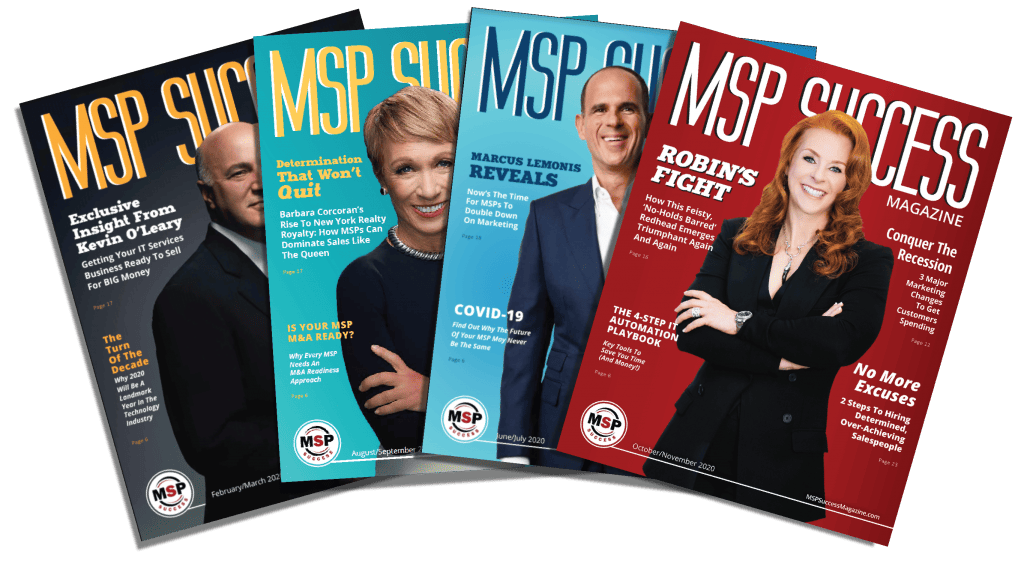Serial entrepreneur, investor, television personality, and Ferrari race car celebrity Robert Herjavec has lived the classic rags-to-riches story. Today, he is one of North America’s most recognizable business leaders. But if you look at how the self-made multimillionaire started off in life, you never would have imagined he’d end up where he is today.
Born in Eastern Europe, Robert arrived in Canada on a boat with his parents after escaping communism in the former Yugoslavia. “My dad escaped from jail in a communist country and grabbed my mom and me, and we came to Halifax when I was 8 years old,” he said. Arriving with $20 and one suitcase between the three of them, they took a train to Toronto and lived in a friend’s basement for 18 months.
In his new country, he experienced a difference in economic classes and discovered for the first time that compared to everyone else, they were extremely poor. He spoke no English and was often bullied for his accent and unstylish clothing. To earn money, he delivered newspapers and waited tables in the 1980s. From those early jobs, he discovered that the relationship with your customer is the most important relationship.
He credits Warren Avis, founder of Avis Car Rental, for showing him his potential as an entrepreneur and for helping him realize that he couldn’t be successful without help from others. “He was the first person to tell me that I was way (and I mean WAY) off base in my approach to sales, and I’ve never forgotten the lesson,” Robert wrote on LinkedIn. “At the time, he took me to the window in our office and asked me to look at the hot dog vendor selling at the edge of our parking lot. He told me that I was acting like the vendor — pushing product and doing all the work to make a living. He followed that statement with, ‘You need to be the guy supplying the dogs to all the vendors if you ever want to scale.’” When Robert left Avis at 25 years old, he received a $60,000 payout. It was the biggest check he’d ever seen, and at the time, he thought it was the most money he’d ever make.
He got his start in technology after applying for a job selling IBM mainframes for a startup company. Although he had zero qualifications, he convinced the founder to hire him by offering to work for free for six months. He eventually rose to become the general manager of the company. But when he was fired shortly after, he used that as his motivation to start his first technology company, BRAK Systems, out of his basement. BRAK quickly became the largest internet security firm in Canada, which he then sold to AT&T Canada (now Allstream Inc.) for $30.2 million in 2000. After selling BRAK, he became vice president of sales for RAMP Network, where he helped facilitate the sale of RAMP to Nokia for $225 million. Receiving options for his help, he became a stay-at-home dad for three years before founding the Herjavec Group in 2003.
Today, the Herjavec Group is recognized as a global cybersecurity operations leader, specializing in managed security services, compliance, identity services, and incident response for governments and enterprises. As the founder of a $200 million company, his goal is to build it into a billion-dollar company.
Every book he’s written — “Driven,” “The Will to Win,” and “You Don’t Have to Be a Shark: Creating Your Own Success” — has appeared on the bestseller’s list. Millions seek his business advice as seen on TV, in print, on the radio, and in digital media — including as a LinkedIn influencer. He shares his business expertise with other entrepreneurs as a leading Shark on ABC’s Emmy Award-winning show “Shark Tank.” He also invested in “Dragons’ Den,” a Canadian reality show that’s similar to “Shark Tank,” and participated in the show for six seasons prior to becoming an investor on “Shark Tank” in 2009.
From a poor kid with broken English and nothing more than $20 in his pocket who didn’t even know he could own a business to starting up technology companies worth hundreds of millions of dollars and bankrolling entrepreneurs’ inventions, his drive to achieve has led him to the fulfillment of a better life for himself and his family.
We sat down with Robert to get his advice on how he did it and how you can, too. Here are Robert’s tips on how to create your own rags-to-riches story.
1. Use Your Failures To Pave The Way To Success.
Robert attributes his success to learning from his own personal failures and being resilient, saying, “I’m a big believer in falling down seven times, but getting up eight.” He also believes that you create your own success and that the only thing the world owes you is opportunity. “People always think success comes easy, but if you are an entrepreneur, you know how much hard work goes into your business,” Robert said. “Being an entrepreneur always comes at a price. The key is to use every challenge that comes your way as a source of motivation.”
2. Learn To Sell.
The difference between really big companies that grow and really small companies that stay the same size is sales. “My biggest challenge when I started out was that I was a very geeky technical guy, and I knew nothing about sales,” Robert said. “And I thought that as long as I was great at what I did, the world would beat a path to my door.” But that didn’t happen. Fortunately, when Robert was 23, his friend, Ross Marsden, who at the time was a global VP of sales for HP, took him aside and told him that despite knowing the technical side extremely well, if he didn’t learn sales, he’d never be successful. “That was a wakeup call for me,” Robert said.
3. Love What You Do.
Building a business requires a lot of time and hard work. If you don’t love what you do, you’ll put off what needs to be done. Robert enjoys his work so much there’s almost nothing he’d rather spend time doing. “Fundamentally, I owe my success in business to the fact that I really love what I do,” he said.
4. Show Up.
While investing in yourself through coaching, attending events, and so on takes time, Robert says you must make the effort. “The key to success is to show up,” Robert said. “If you don’t show up, you can’t win.”
5. Put A Sales System In Place.
Business owners who don’t have a sales system in place will not be able to scale their business and are at risk for going out of business. When looking to invest in a company, Robert takes the business owner out to dinner and asks them questions to see how good their business is. “One of the questions I always ask is how do you guys get customers? How do you guys find new business?” Robert said. “And if the answer is anything along the line of word of mouth, I’m like, ‘Yeah, these guys aren’t going anywhere.’ Because you know who uses word of mouth or thinks that’s how sales are done? It’s people who don’t know sales. Word of mouth is very difficult to scale, and it’s not in your control. Sales is not a foreign object that controls you. Sales is an extension of what you do.”
6. Reject Mediocrity.
To make a lasting impact in your field, the most important decision you can make, according to Robert, is to reject mediocrity. Robert says, “The road of mediocrity leads to failure,” and “In the long run, ‘good enough’ is never good enough, whether in our personal lives or in our careers.”
7. Outsource What You’re Not Good At.
If you’re not good at making phone calls, outsource someone to do that. If you’re not good at follow up, outsource it. Do the things you are good at and outsource the rest.
8. Get Sales Coaching.
As the owner or CEO of the company, you must understand sales so you don’t get taken advantage of by someone. The way to get better at sales is by getting a coach. “I used to race cars, and I was an okay race car driver, but I never won a race,” Robert said. “I noticed that everybody who was winning races had a coach. How can you get somewhere if you don’t know what good looks like? As soon as I got a coach, he got in the car with me and he said, ‘Don’t do that. That’s bad.’ And I’m like, ‘But it feels good.’ And he said, ‘Well, do you want to feel good? Or do you want to win races? My job is not to make you comfortable. My job is to coach you.’ And I started winning races. You’ve got to have a coach. You must get better at it. You can never outsource the knowledge of sales. You can outsource salespeople, you can outsource calling or campaigns, but you’ve got to know it to the degree that somebody can’t con you.”
9. Stay Hungry.
As you become more successful, it’s easy to fall into the trap of feeling comfortable and becoming complacent. Always remember that there is another company looking to take business away from you. “One of the hardest things about becoming more successful is success,” Robert said. “Because you know what happens when you have a little bit of success? You’re not that hungry young person looking to take on the world. You get to a point where you look around, and say, ‘I love my Tesla. I love my house. My significant other loves me most of the time. Life is really good.’ Don’t forget, there is somebody out there like you were many years ago who wants to take it away from you … The bigger you are, the bigger the bullseye is on your back.”
To remind him to stay hungry, Robert has a granite sign in his office that he sees every day that reads, “Every day, somebody wakes up with the sole intention of kicking your ass.”
10. Always Be Selling.
One of the best ways to avoid becoming complacent is to make it a goal to sell something every day. “You can have the best accounting system,” Robert said. “You can have the best CRM. You can have the best tools, but nothing happens until you sell something … so if one of your top three tasks every day isn’t to sell something, you’re going to fail. You may not fail tomorrow. You may not fail next year. But inevitably, you will.”
11. Create A Sales Culture In Your Organization.
While quality and customer service are important, too much emphasis on these and not enough emphasis on sales can be a problem. Robert tells his entire company that every employee is a salesperson and continually repeats this message to keep it top of mind. “We seem to have permeated this culture where as long as we do a great job for our customers, it is just going to work out,” Robert said. “And I’m like, ‘WHOA, it’s all about sales. Everybody in this room is a salesperson.’”
12. When Starting Out, Put All Your Energy Into Sales.
When Robert started his company, he made the rookie mistake of thinking his reputation would bring in business. If he were starting out today, his approach would be to make selling his No. 1 priority. “Our first year forecast was $5 million in sales,” Robert said. “And that was because I had sold the biggest security company in Canada and was a big guy in the security business. My head was this big. I figured, ‘I’ll put a shingle on the door and people will beat a path to us. We won’t have to sell because people know who I am. It will be easy.’ We sold $400,000 our first year. It took us five years to get to $6.2 million. In the next five years, we got to $100 million. In the next three years, we got to $200 million. If I was starting out today from zero, I would put all my energy on sales. I would try to really differentiate what I am and how I go to market. And I would have the confidence that once I got the customer, I’ll take care of them.”
13. Let Bad Experiences Be Your Inspiration, Not An Excuse.
It’s not uncommon for people to shy away from something after having a bad experience. For example, some people say they hate sales or dislike selling because of a bad experience with salespeople. But Robert encourages you to use these experiences as your motivation rather than an excuse for why you don’t have a sales system in place or why sales isn’t a high priority. “I had a very negative experience when I was 12 years old when this door-to-door salesman sold my mom a vacuum cleaner,” Robert said. “She didn’t speak any English. She couldn’t read English. So, she signed a contract for five years — a layaway plan. The layaway plan was more than our rent. It was really devastating for us.” Robert vowed that he would never let his family be in the position to be taken advantage of again. Today, realizing that you’ll be extremely limited on how successful you can be without a sales mindset, he uses it as a lesson about how people expect you to sell them something when you call on them. “One of the things we’re trying to teach our people is when you call somebody, they know you’re there to sell them something,” he said. “It’s on a subconscious level, but that’s why you’re calling them.”
14. Don’t Lose Momentum.
You must keep moving the ball forward and driving revenue. “Only the road to success leads to greater success,” Robert said. “And you cannot go down that road without sales.” On the days where he is struggling with a lot to do and none of the things on his list are sales, he has a mantra to motivate himself. “One of the mantras I always say to myself is ‘Constant forward momentum, constant forward momentum, constant forward momentum,’” Robert said. “The only momentum in a company is sales … There are multiple ways to drive revenue. For example, with existing customers, you can go wider, but it’s all in the bucket of sales.”
15. Stop Worrying About Selling Too Much.
If your technical people feel like they only have enough bandwidth to fulfill the clients you already have and not enough for more sales, motivate them with a pep talk to let them know that you can’t stay the same and hold off on sales — unless they want to keep working at the same salary without any benefits or bonuses. “Technical people go to our sales kickoffs and say, ‘But what if we sell more? What will happen then? We’re struggling servicing the customers we have now, what if we sell more?’ My answer to them is, ‘Would you like a raise one day? Would you like to make more money? Would you like more opportunity? Would you like more opportunity for your family, for your kids, for you? How are we going to do that unless we grow the company?’”
16. Don’t Wait To Start Selling.
Many IT people believe that their product or service must be perfect before they start selling it. But Robert says this is a huge fallacy. “Engineers want to make it perfect before they sell it,” Robert said. “True entrepreneurs jump out of the airplane and have the confidence that they’ll figure out the parachute on the way to the bottom.”
17. Learn How To Sell Yourself First.
More important than your product or service is selling yourself. “On ‘Shark Tank,’ entrepreneurs have to sell themselves just as much as their business because we invest in them … If whomever you’re selling to doesn’t like you, they’re not going to listen to you … be the salesperson you’d buy something from.”
18. Stay Laser-Focused.
For several years, Robert competed as Ferrari #007 for Herjavec Group Racing in the Ferrari Challenge North America Series. He achieved multiple podiums and even won Rookie of The Year in 2011. To Robert, building a successful business is a lot like racing cars. “You have to stay laser-focused when driving a car over 200 miles an hour,” he said. “And the same approach is required when growing a business in today’s world of rapidly changing technology.”
Robert’s principles are valuable in today’s competitive IT environment. His story demonstrates that anyone can succeed if they are willing to take control of their own future. Of course, from our conversation with Robert, it’s obvious that getting good at sales played a key role in his rags-to-riches story. The good news is that anyone can get better at sales. Just like Robert, who admits he knew nothing about sales when he started out, you can become an expert, too. In fact, he says there is no such thing as a “natural-born salesperson.” In his book, “You Don’t Have To Be A Shark,” Robert makes the case that “great salespeople are made, not born, and no one in life achieves success without knowing how to sell.” Remember to sell yourself first, listen more than you talk, know who the right person is to sell to, understand what motivates your prospect, and keep it simple. And if you’re struggling with sales, get coaching and follow Robert’s sage advice to get out there and sell something. Your business growth depends on it!















